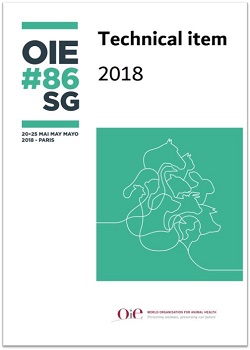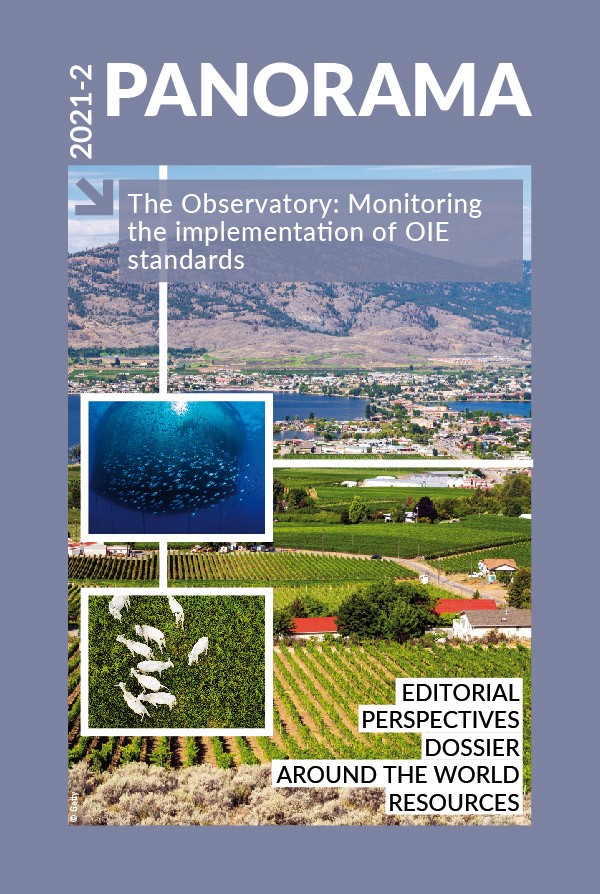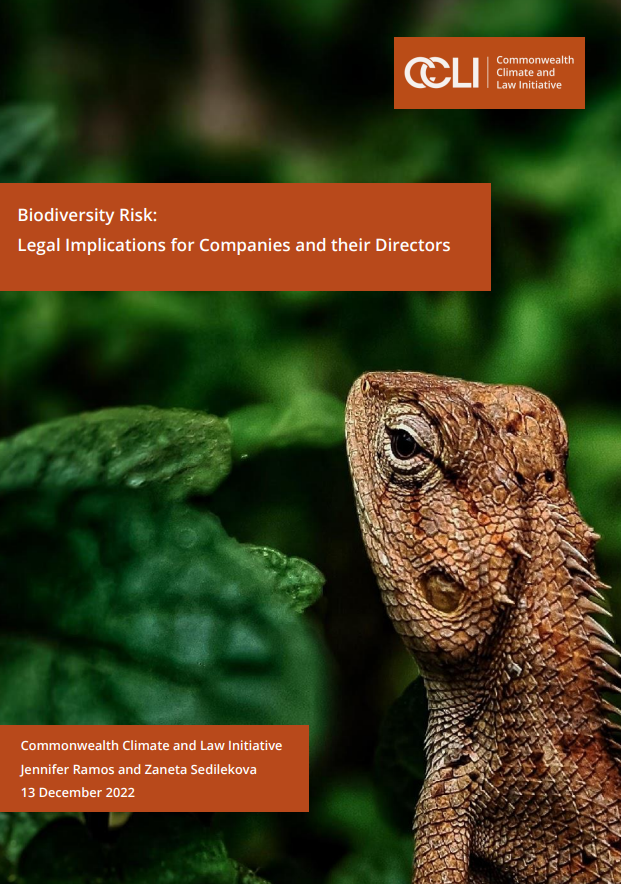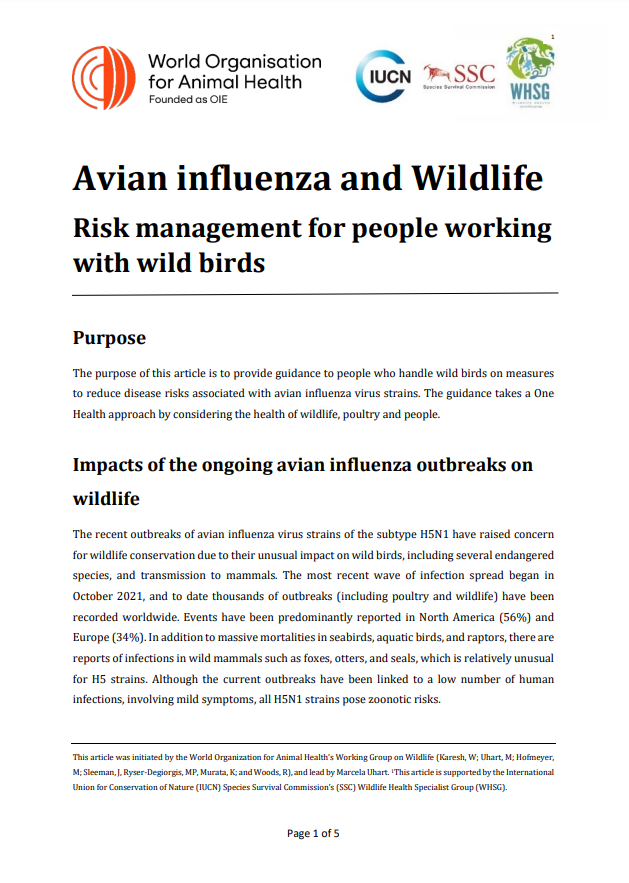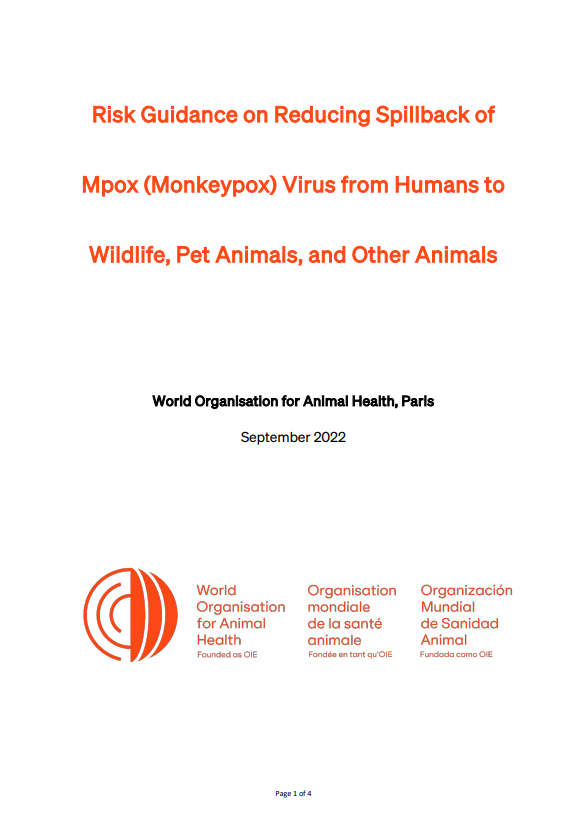Keywords
World Organisation for Animal Health (OIE)
2018
Technical item presented to the World Assembly of Delegates during the 86th General Session of the OIE, Paris, 20–25 May 2018.
Author: Sarah Kahn
16 pages
Summary:
This technical item addressed the implementation by Members of the OIE standards for international trade in live animals and animal products. The purpose of the study was to identify and analyse factors that limit implementation of the standards and make recommendations on how the OIE could help Members to overcome these difficulties. The high response rate (80%) shows that the importance of the OIE standards is generally understood and provides confidence regarding the analysis and recommendations in this report. In general, Members expressed a high level of support for the implementation of OIE standards and this is very encouraging. However, some newer and more complex concepts are not well understood and opportunities to implement safe trade are being missed. Key challenges that were reported by a significant number of countries included a lack of technical expertise, outdated veterinary legislation, lack of confidence in applying risk management, lack of transparency, and failure on the part of both importing and exporting countries to respect the OIE standards. Inevitably, political and commercial considerations have an effect on trade policies. It is, therefore, important that OIE Delegates and their staff base their advice on scientific evidence and OIE recommendations to the extent possible, having regard to national legislative and policy frameworks within which they must operate.
To support the national Veterinary Services and Aquatic Animal Health Services, the OIE should continue to promote its normative role and to provide communications material that can influence Members’ decision-makers. This is particularly important to avoid non-scientific responses to disease events at the national and global levels. The OIE should also continue its role as advocate for Veterinary Services and Aquatic Animal Health Services, and the provision of the PVS Pathway, which provides important support to developing countries and is increasingly finding application in developed countries.
Turning specifically to the uptake of the international standards, nearly all countries saw a need for more training on the OIE standards, including their relationship with the Agreement on the Application of Sanitary and Phytosanitary Measures of the World Trade Organization. The current arrangements for provision of technical advice, training and networking opportunities should be maintained or increased, with more focus on the specific needs of regions. Expansion of training opportunities through the use of distance learning should be considered. OIE Members are strongly encouraged to consider the application of good regulatory practices as a means to improve the efficiency of their regulatory processes and build sustainable alliances with the private sector. Finally, the OIE initiative to establish an Observatory on the implementation of standards is particularly welcome. This should provide for identification and analysis of the impediments to use of the standards and, importantly, the recommendation of practical solutions.
[ View the report ]
[ View the descriptive analysis of the questionnaire ]
[ View the resolution ]
DOI of the original report: https://doi.org/10.20506/TT.2936




